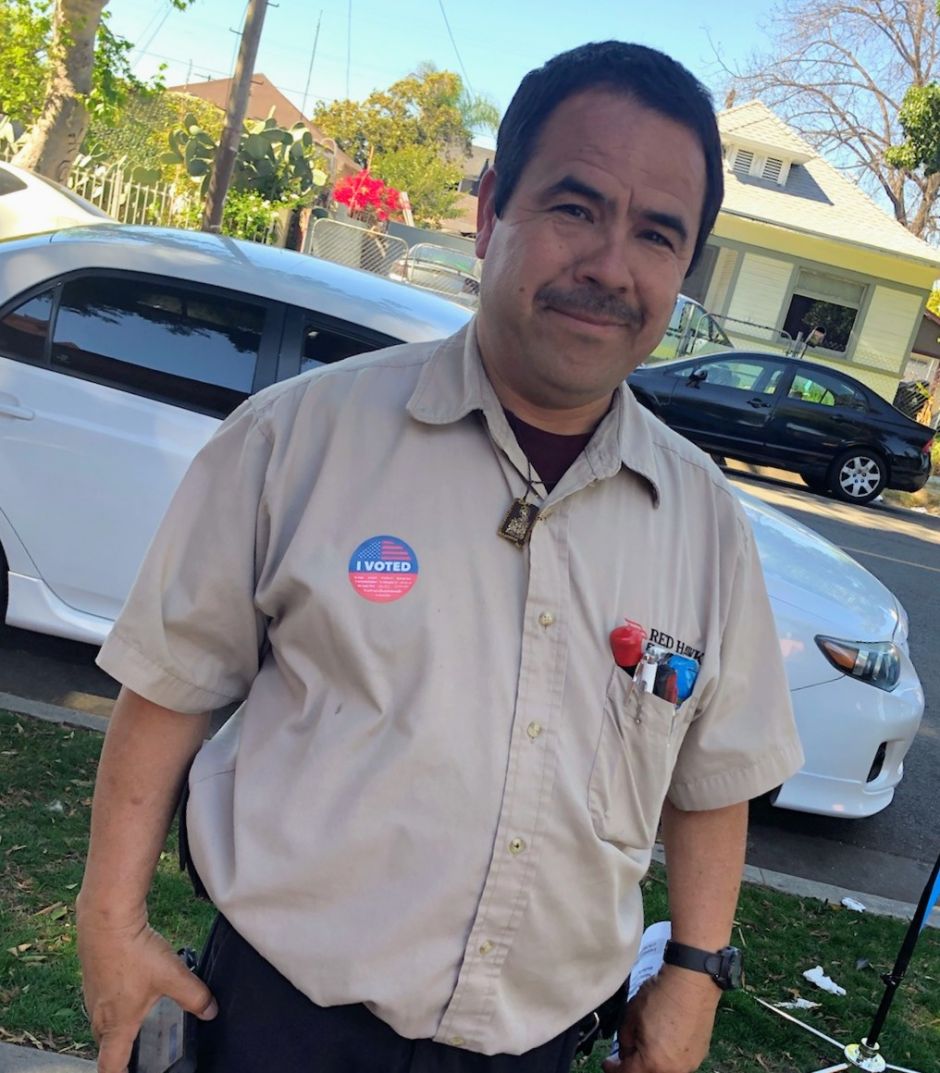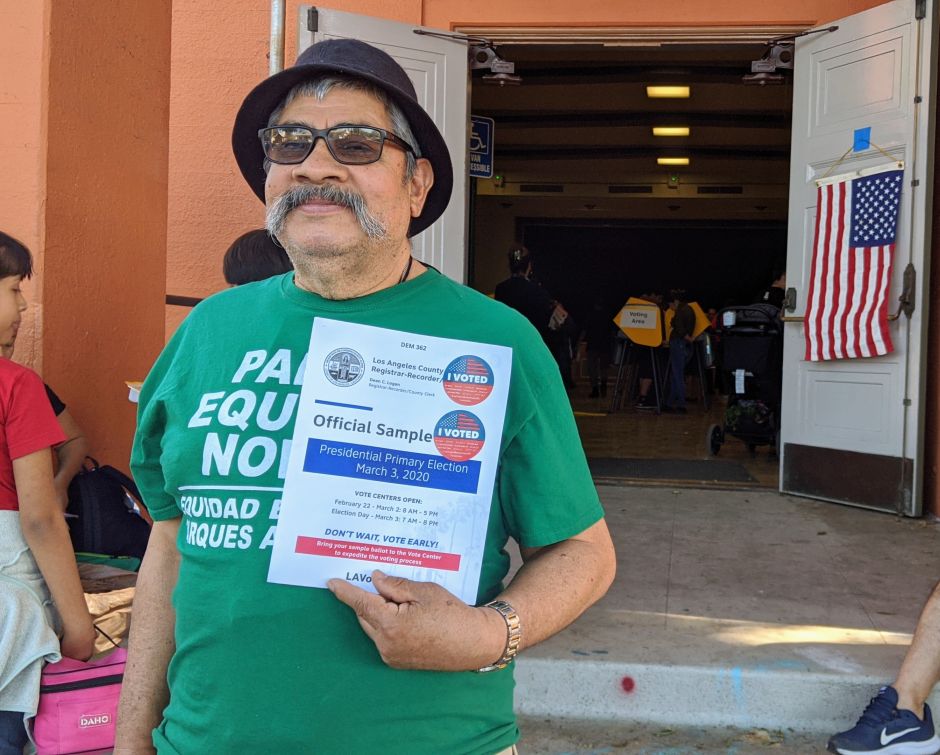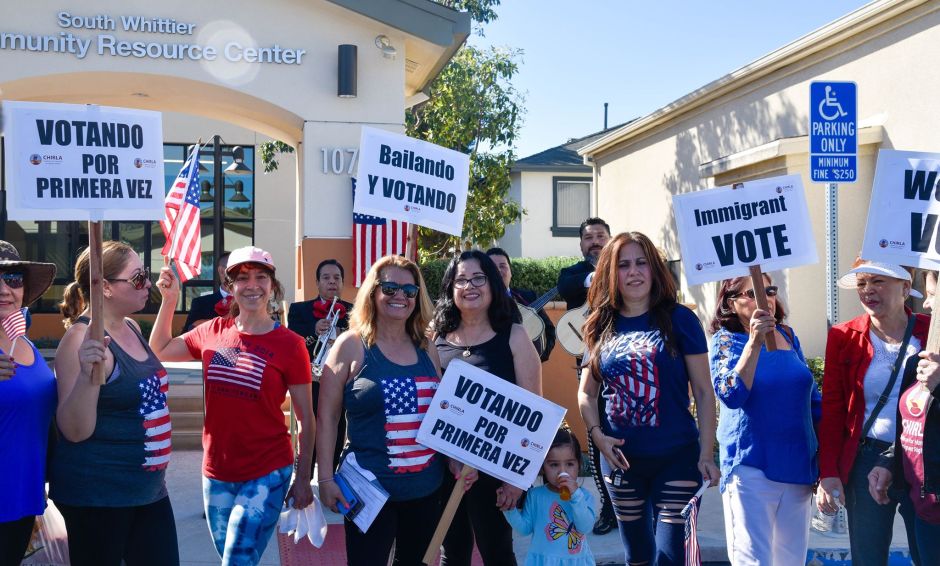At least in southern Los Angeles, an area of Latino and immigrant population, community participation was always constant.

The elections were expected to be one of the busiest in years.
Photo:
Jacqueline García / Impremedia
Pedro Carrasco, 41, became a citizen two years ago and in these elections he exercised his vote for the first time.
He said he was initially not paying close attention to the elections until he saw his niece involved in knowing the proposals of the presidential candidates, as well as in the options of local leaders.
“Sometimes we say that for the time we cannot, but those are excuses. I only took a little push, ”said the resident of south central Los Angeles. "I always wanted to vote and then I explained to my niece and told her to help me."

Carrasco arrived at the voting center located at Trinity Elementary in south central Los Angeles accompanied by two of her nephews. Already in his ballot box, which now in Los Angeles County is a machine with a touch screen, Carrasco said it was easy to operate.
"Very practical, because in fact they can be accommodated in some languages," said the voter.
Bertha Arellano was also in the voting center.
She arrived accompanied by her son Diego Arellano, 9, who was present when she was making her vote election.
"I asked permission here to let me have it because I want him to see the decision I am making for him and his brothers," said the mother of four.

Arellano added that new machines are a good option and although it was a little difficult at the beginning afterwards he was more understanding of the process.
"Because when you move the screen it goes very fast and if you don't do it right you get the form and you have to put it back in," said Arellano who has been voting for several years.
She assured that the decision for her election of the next leaders mainly at the national level was based on the well-being of her own.
“I come from an immigrant family and we always try to excel,” said Arellano. "We do not agree with many decisions that are currently taken and that is why our vote is important."

Trinity School was busy at almost all times, with voters entering and leaving. A local supervisor, who did not give her name, said that the problems they had presented until 2 in the afternoon had been only paper that stuck in the machine and the machines that were frozen. But both were easy to solve at all times.
Several voters said that the most problematic thing was trying to understand the new machines. Among them were the husbands Jesús Velázquez and Antonia Manrique.
"It's the first time we voted with this machine and they had to be guiding us because we were used to each other," said Manrique. "It made me more complicated."
The couple indicated that the biggest problem they had on this occasion was the voting location, since previously there was a voting center in the building where they live and now they had to travel further to the school.

Important elections
In a statement, Los Angeles County voter registration representative Dean Logan said this election could become one of the largest and most highly regarded presidential primaries in the history of Los Angeles County.
"This election has more than 170 elections, 905 candidates and 48 local measures, two measures at the county level and one state measure on the ballot," Logan said.
Although preliminary results will be given on Tuesday night, the final results may take weeks to know since all the votes still need to be counted by mail.
The state of California has 39.5 million people of which 25.2 million are eligible to vote and 20 million are registered.







